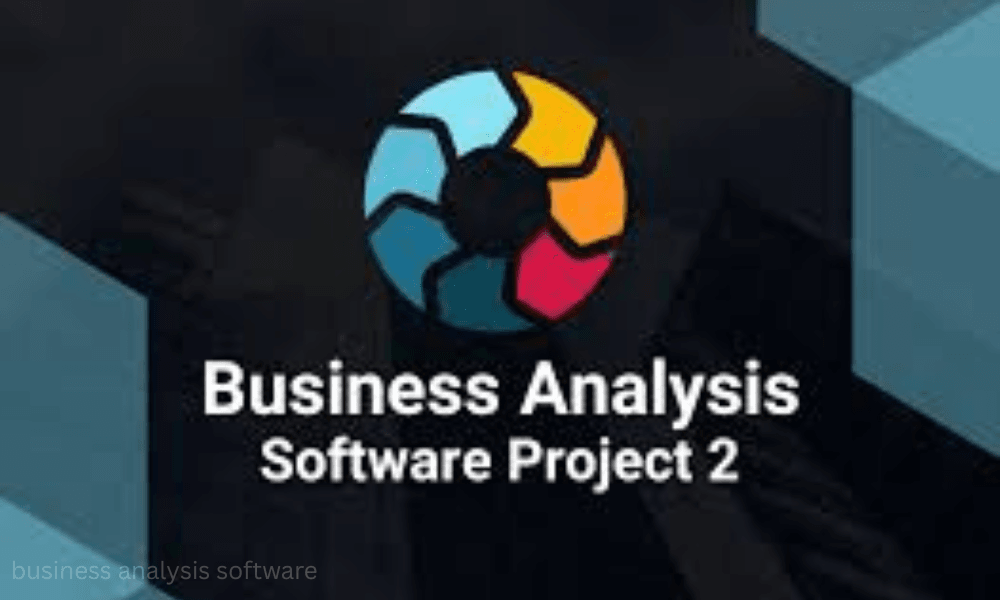Business Analysis Software: The Ultimate Guide for Smarter Decisions

What is Business Analysis Software?
Business analysis software refers to digital tools that help organizations gather, analyze, and visualize business data to make better decisions. These platforms empower users to break down complex datasets and convert them into meaningful insights. Whether you’re managing a startup or scaling an enterprise, this software is key to making informed, strategic choices.
Why Is It Important Today?
In today’s fast-paced market, businesses must rely on real-time insights rather than gut feelings. Business analysis ensures you’re always one step ahead, whether you’re optimizing operations, understanding customers, or forecasting future trends.
Table of Contents
Understanding the Core Functions
Data Collection and Aggregation
At its core, business analysis pulls data from multiple sources—Excel files, cloud apps, databases—and aggregates it into a single, usable format. No more manually syncing spreadsheets.
Workflow and Process Mapping
Many tools allow you to visualize internal workflows and processes, helping you identify inefficiencies and bottlenecks quickly.
Reporting and Visualization Tools
What’s data without a story? With built-in dashboards and charts, these platforms turn raw numbers into clear, easy-to-read visual reports.
Key Features to Look For
User-Friendly Interface
A steep learning curve is a no-go. Choose tools that are intuitive and simple—even for non-technical users.
Integration Capabilities
Your analysis software should work well with your existing tools—like CRMs, ERPs, and marketing platforms.
Customizable Dashboards
Not every user needs the same data. Good platforms let you customize dashboards based on roles and needs.
Security and Compliance Features
Especially for regulated industries like finance and healthcare, choose tools that support encryption, access control, and compliance standards like GDPR and HIPAA.
Types of Business Analysis
Cloud-Based vs On-Premise Solutions
- Cloud-Based tools are accessible from anywhere and often updated automatically.
- On-Premise software gives more control over data security but requires in-house maintenance.
All-in-One Platforms vs Specialized Tools
- All-in-One Platforms cover a broad spectrum of analytics needs.
- Specialized Tools focus on niche functionalities like forecasting, market analysis, or data mining.
Top Business Software Tools in 2025
Microsoft Power BI
Offers robust reporting features and integrates seamlessly with Microsoft products.
Tableau
Best known for its powerful data visualization capabilities.
Zoho Analytics
Affordable and user-friendly, especially great for small businesses.
Qlik Sense
Offers associative data models that enable deep, interactive analysis.
Alteryx
Focuses on data blending and advanced analytics—perfect for data-heavy industries.
Benefits of Using Analysis Software
Data-Driven Decision Making
Say goodbye to guesswork—data-backed decisions reduce risk and increase efficiency.
Increased Productivity
Automated reporting and dashboards save hours of manual labor each week.
Cost Optimization
By spotting inefficiencies, these tools help you trim unnecessary expenses.
Enhanced Forecasting Accuracy
With predictive modeling, you can prepare for market changes instead of reacting to them.
Who Uses Business Analysis Tools?
Business Analysts
These are the primary users, driving decisions with clear insights.
Project Managers
They use analysis software to track performance, timelines, and deliverables.
Executives and Stakeholders
High-level reports help leadership make strategic moves with confidence.
Industry Use Cases
Retail and E-Commerce
Track customer behavior, sales trends, and inventory management in real time.
Finance and Banking
Ensure compliance, spot fraud, and assess risk more accurately.
Healthcare
Analyze patient data, manage hospital operations, and forecast medical needs.
Manufacturing
Improve supply chain operations and monitor machine performance metrics.
How to Choose the Right Business Software
Assessing Business Needs
Start by identifying your goals—do you want better reporting, smarter forecasting, or something else?
Budget and Scalability
Pick a tool that fits your current budget and can scale as you grow.
Free Trials and Demos
Always test before you invest. Free trials can reveal how intuitive and effective a tool really is.
Challenges in Implementing Business Analysis Software
User Training and Adoption
Even the best tools fail without user buy-in. Offer proper training and support.
Data Quality Issues
Bad data leads to bad insights. Clean, accurate data is a must.
Integration Complexity
Connecting new software to legacy systems can be tricky—plan accordingly.
Cost and Pricing Models
Subscription-Based
Most cloud tools offer monthly or yearly plans based on features and users.
Pay-As-You-Go
Perfect for startups—pay only for what you use.
Enterprise Licensing
For large businesses needing full access, custom enterprise licenses offer the most flexibility.
Future Trends in Business Analysis Software
AI and Machine Learning Integration
Expect smarter suggestions and automated pattern detection.
Real-Time Data Analytics
More platforms are moving towards instant data processing for quicker decisions.
Predictive Modeling Advancements
Forecasting will only get sharper with evolving algorithms and deeper datasets.
Tips for Maximizing Software ROI
Regular Training
Keep your team up-to-date with regular workshops.
Leveraging Full Feature Set
Explore advanced features like alerts, what-if analysis, and embedded dashboards.
Monitoring KPIs
Use the software to track performance and measure real business impact.
Common Mistakes to Avoid
Overcomplicating the Toolset
Stick to features you need. More isn’t always better.
Ignoring User Feedback
Regularly ask your team how the tool could work better for them.
Failing to Update Data Sources
Stale data leads to outdated insights—keep things fresh.
Final Thoughts on Business Analysis Tools
Whether you’re running a small shop or managing a large enterprise, business analysis software is more than just a nice-to-have—it’s essential. It helps you see clearly, act wisely, and stay competitive. The right tool can turn data into direction and uncertainty into confidence.
FAQs
What industries benefit the most from business analysis software?
Industries like retail, finance, healthcare, and manufacturing see the biggest benefits due to their large data volumes and constant need for real-time insights.
Is business analysis software suitable for small businesses?
Yes, many platforms are scalable and affordable, offering versions tailored to smaller teams with fewer data needs.
Can these tools be integrated with CRM systems?
Absolutely! Most modern business analysis tools support CRM integrations, allowing seamless data flow and unified reporting.






